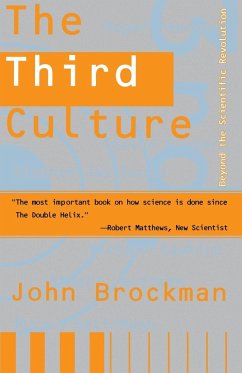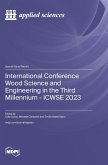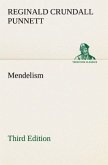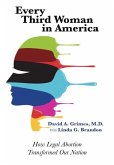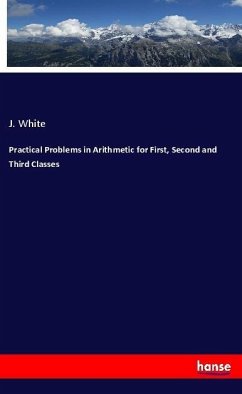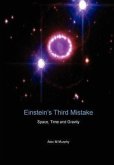- Broschiertes Buch
- Merkliste
- Auf die Merkliste
- Bewerten Bewerten
- Teilen
- Produkt teilen
- Produkterinnerung
- Produkterinnerung
This eye-opening look at the intellectual culture of today--in which science, not literature or philosophy, takes center stage in the debate over human nature and the nature of the universe--is certain to spark fervent intellectual debate.
Andere Kunden interessierten sich auch für
![Practical Engineering Drawing and Third Angle Projection Practical Engineering Drawing and Third Angle Projection]() Frederick Newton WillsonPractical Engineering Drawing and Third Angle Projection17,90 €
Frederick Newton WillsonPractical Engineering Drawing and Third Angle Projection17,90 €![Supplement to Third Edition of History of George Heriot's Hospital Supplement to Third Edition of History of George Heriot's Hospital]() Frederick W. BedfordSupplement to Third Edition of History of George Heriot's Hospital13,90 €
Frederick W. BedfordSupplement to Third Edition of History of George Heriot's Hospital13,90 €![International Conference Wood Science and Engineering in the Third Millennium - ICWSE 2023 International Conference Wood Science and Engineering in the Third Millennium - ICWSE 2023]() International Conference Wood Science and Engineering in the Third Millennium - ICWSE 2023144,99 €
International Conference Wood Science and Engineering in the Third Millennium - ICWSE 2023144,99 €![Mendelism Third Edition Mendelism Third Edition]() Reginald Crundall PunnettMendelism Third Edition14,90 €
Reginald Crundall PunnettMendelism Third Edition14,90 €![Every Third Woman in America Every Third Woman in America]() David A. Grimes MDEvery Third Woman in America43,99 €
David A. Grimes MDEvery Third Woman in America43,99 €![Practical Problems in Arithmetic for First, Second and Third Classes Practical Problems in Arithmetic for First, Second and Third Classes]() J. WhitePractical Problems in Arithmetic for First, Second and Third Classes12,90 €
J. WhitePractical Problems in Arithmetic for First, Second and Third Classes12,90 €![Einstein's Third Mistake Einstein's Third Mistake]() Alex M. MurphyEinstein's Third Mistake31,99 €
Alex M. MurphyEinstein's Third Mistake31,99 €-
-
-
This eye-opening look at the intellectual culture of today--in which science, not literature or philosophy, takes center stage in the debate over human nature and the nature of the universe--is certain to spark fervent intellectual debate.
Hinweis: Dieser Artikel kann nur an eine deutsche Lieferadresse ausgeliefert werden.
Hinweis: Dieser Artikel kann nur an eine deutsche Lieferadresse ausgeliefert werden.
Produktdetails
- Produktdetails
- Verlag: Touchstone
- Seitenzahl: 416
- Erscheinungstermin: 7. Mai 1996
- Englisch
- Abmessung: 216mm x 140mm x 25mm
- Gewicht: 584g
- ISBN-13: 9780684823447
- ISBN-10: 0684823446
- Artikelnr.: 20954582
- Herstellerkennzeichnung
- Books on Demand GmbH
- In de Tarpen 42
- 22848 Norderstedt
- info@bod.de
- 040 53433511
- Verlag: Touchstone
- Seitenzahl: 416
- Erscheinungstermin: 7. Mai 1996
- Englisch
- Abmessung: 216mm x 140mm x 25mm
- Gewicht: 584g
- ISBN-13: 9780684823447
- ISBN-10: 0684823446
- Artikelnr.: 20954582
- Herstellerkennzeichnung
- Books on Demand GmbH
- In de Tarpen 42
- 22848 Norderstedt
- info@bod.de
- 040 53433511
John Brockman is a literary agent and author specializing in scientific literature. He established the Edge Foundation, an organization that brings together leading edge thinkers across a broad range of scientific and technical fields.
CONTENTS
INTRODUCTION
The Emerging Third Culture
The third culture consists of those scientists and other thinkers in the
empirical world who, through their work and expository writing, are taking
the place of the traditional intellectual in rendering visible the deeper
meanings of our lives, redefining who and what we are.
PART ONE: THE EVOLUTIONARY IDEA
Chapter 1.
GEORGE C. WILLIAMS
"A Package of Information"
The gene is a package of information, not an object. The pattern of base
pairs in a DNA molecule specifies the gene. But the DNA molecule is the
medium, it's not the message. Maintaining this distinction between the
medium and the message is absolutely indispensable to clarity of thought
about evolution.
Chapter 2.
STEPHEN JAY GOULD
"The Pattern of Life's History"
There is no progress in evolution. The fact of evolutionary change through
time doesn't represent progress as we know it. Progress isn't inevitable.
Much of evolution is downward in terms of morphological complexity, rather
than upward. We're not marching toward some greater thing.
Chapter 3.
RICHARD DAWKINS
"A Survival Machine"
It rapidly became clear to me that the most imaginative way of looking at
evolution, and the most inspiring way of teaching it, was to say that it's
all about the genes. It's the genes that, for their own good, are
manipulating the bodies they ride about in. The individual organism is a
survival machine for its genes.
Chapter 4.
BRIAN GOODWIN
"Biology Is Just a Dance"
The "new" biology is biology in the form of an exact science of complex
systems concerned with dynamics and emergent order. Then everything in
biology changes. Instead of the metaphors of conflict, competition, selfish
genes, climbing peaks in fitness landscapes, what you get is evolution as a
dance. It has no goal. As Stephen Jay Gould says, it has no purpose, no
progress, no sense of direction. It's a dance through morphospace, the
space of the forms of organisms.
Chapter 5.
STEVEN JONES
"Why Is There So Much Genetic Diversity?"
We have the beginnings of an answer as to why, in some places, one snail
species is so variable, but we have no real idea why in any species
anywhere at any time no two individuals are identical. That's an essential
question of evolution. All others flow from that.
Chapter 6.
NILES ELDREDGE
"A Battle of Words"
Species are real entities, spatiotemporally bounded, and they're
information entities. Other kinds of entities do things. Ecological
populations, for example, have niches; they function. Species don't
function that way. They don't do things; they are, instead, information
repositories. A species is not like an organism at all, but it's
nonetheless a kind of entity that plays an important role in the
evolutionary process.
Chapter 7.
LYNN MARGULIS
"Gaia Is a Tough Bitch"
How did the eukaryotic cell appear? Probably it was an invasion of
predators, at the outset. It may have started when one sort of squirming
bacterium invaded another -- seeking food, of course. But certain invasions
evolved into truces; associations once ferocious became benign. When
swimming bacterial would-be invaders took up residence inside their
sluggish hosts, this joining of forces created a new whole that was, in
effect, far greater than the sum of its parts: faster swimmers capable of
moving huge quantities of genes evolved. Some of these newcomers were
uniquely competent in the evolutionary struggle. Further bacterial
associations were added on, as the modern cell evolved.
PART TWO: A COLLECTION OF KLUDGES
Chapter 8.
MARVIN MINSKY
"Smart Machines"
The brain is...a great jury-rigged combination of many gadgets to do
different things, with additional gadgets to correct their deficiencies,
and yet more accessories to intercept their various bugs and undesirable
interactions -- in short, a great mess of assorted mechanisms that barely
manage to get the job done.
Chapter 9.
ROGER SCHANK
"Information Is Surprises"
Information is surprises. We all expect the world to work out in certain
ways, but when it does, we're bored. What makes something worth knowing is
organized around the concept of expectation failure. Scripts are
interesting not when they work but when they fail.
Chapter 10.
DANIEL C. DENNETT
"Intuition Pumps"
The idea of consciousness as a virtual machine is a nice intuition pump. It
takes a while to set up, because a lot of the jargon of artificial
intelligence and computer science is unfamiliar to philosophers or other
people. But if you have the patience to set some of these ideas up, then
you can say, "Hey! Try thinking about the idea that what we have in our
heads is software. It's a virtual machine, in the same way that a word
processor is a virtual machine." Suddenly, bells start ringing, and people
start seeing things from a slightly different perspective.
Chapter 11.
NICHOLAS HUMPHREY
"The Thick Moment"
What is it like to be ourselves? How can a piece of matter which is a human
being be the basis for the experience each one of us recognizes as what
it's like to be us? How can a human body and a human brain also be a human
mind?
Chapter 12.
FRANCISCO VARELA
"The Emergent Self"
Why do emergent selves, virtual identities, pop up all over the place,
creating worlds, whether at the mind/body level, the cellular level, or the
transorganism level? This phenomenon is something so productive that it
doesn't cease creating entirely new realms: life, mind, and societies. Yet
these emergent selves are based on processes so shifty, so ungrounded, that
we have an apparent paradox between the solidity of what appears to show up
and its groundlessness. That, to me, is the key and eternal question.
Chapter 13.
STEVEN PINKER
"Language Is a Human Instinct"
I call language an "instinct," an admittedly quaint term for what other
cognitive scientists have called a mental organ, a faculty, or a module.
Language is a complex, specialized skill, which develops in the child
spontaneously without conscious effort or formal instruction, is deployed
without awareness of its underlying logic, is qualitatively the same in
every individual, and is distinct from more general abilities to process
information or behave intelligently.
Chapter 14.
ROGER PENROSE
"Consciousness Involves Noncomputable Ingredients"
My present view is that the brain isn't exactly a quantum computer. Quantum
actions are important in the way the brain works, but the noncomputational
actions occur at the bridge from the quantum to the classical level, and
that bridge is beyond our present understanding of quantum mechanics.
PART THREE: QUESTIONS OF ORIGINS
Chapter 15.
MARTIN REES
"An Ensemble of Universes"
Cosmology is exciting to the public because it's clearly fundamental, and
this is a rather special time in the subject. For the first time, it's
become a part of mainstream science, and we can address questions about the
origin of the universe.
Chapter 16.
ALAN GUTH
"A Universe in Your Backyard"
One of the most amazing features of the inflationary-universe model is that
it allows the universe to evolve from something that's initially incredibly
small. Something on the order of twenty pounds of matter is all it seems to
take to start off a universe....It becomes very tempting to ask whether, in
principle, it's possible to create a universe in the laboratory -- or a
universe in your backyard -- by man-made processes.
Chapter 17.
LEE SMOLIN
"A Theory of the Whole Universe"
What is space and what is time? This is what the problem of quantum gravity
is about. In general relativity, Einstein gave us not only a theory of
gravity but a theory of what space and time are -- a theory that overthrew
the previous Newtonian conception of space and time. The problem of quantum
gravity is how to combine the understanding of space and time we have from
relativity theory with the quantum theory, which also tells us something
essential and deep about nature.
Chapter 18.
PAUL DAVIES
"The Synthetic Path"
My personal belief is that biologists tend to be uncompromising and
reductionistic because they're still feeling somewhat insecure with their
basic dogma, whereas physicists have three hundred years of secure
foundation for their subject, so they can afford to be a bit more
freewheeling in their speculation about these complex systems.
PART FOUR: WHAT WAS DARWIN'S ALGORITHM?
Chapter 19.
MURRAY GELL-MANN
"Plectics"
To refer to the subject on which some of us now work as "complexity" seems
to me to distort the nature of what we do, because the simplicity of the
underlying rules is a critical feature of the whole enterprise. Therefore
what I like to say is that the subject consists of the study of simplicity,
complexity of various kinds, and complex adaptive systems, with some
consideration of complex nonadaptive systems as well.
Chapter 20.
STUART KAUFFMAN
"Order for Free"
What kinds of complex systems can evolve by accumulation of successive
useful variations? Does selection by itself achieve complex systems able to
adapt? Are there lawful properties characterizing such complex systems? The
overall answer may be that complex systems constructed so that they're on
the boundary between order and chaos are those best able to adapt by
mutation and selection.
Chapter 21.
CHRISTOPHER G. LANGTON
"A Dynamical Pattern"
Physics has largely been the science of necessity, uncovering the
fundamental laws of nature and what must be true given those laws. Biology,
on the other hand, is the science of the possible, investigating processes
that are possible, given those fundamental laws, but not necessary. Biology
is consequently much harder than physics but also infinitely richer in its
potential, not just for understanding life and its history but for
understanding the universe and its future. The past belongs to physics, but
the future belongs to biology.
Chapter 22.
J. DOYNE FARMER
"The Second Law of Organization"
Many of us believe that self-organization is a general property --certainly
of the universe, and even more generally of mathematical systems that might
be called "complex adaptive systems." Complex adaptive systems have the
property that if you run them -- by just letting the mathematical variable
of "time" go forward -- they'll naturally progress from chaotic,
disorganized, undifferentiated, independent states to organized, highly
differentiated, and highly interdependent states.
PART FIVE: SOMETHING THAT GOES BEYOND OURSELVES
Chapter 23.
W. DANIEL HILLIS
"Close to the Singularity"
We're analogous to the single-celled organisms when they were turning into
multicellular organisms. We're the amoebas, and we can't quite figure out
what the hell this thing is that we're creating. We're right at that point
of transition, and there's something coming along after us.
SELECTED READING
INDEX
INTRODUCTION
The Emerging Third Culture
The third culture consists of those scientists and other thinkers in the
empirical world who, through their work and expository writing, are taking
the place of the traditional intellectual in rendering visible the deeper
meanings of our lives, redefining who and what we are.
PART ONE: THE EVOLUTIONARY IDEA
Chapter 1.
GEORGE C. WILLIAMS
"A Package of Information"
The gene is a package of information, not an object. The pattern of base
pairs in a DNA molecule specifies the gene. But the DNA molecule is the
medium, it's not the message. Maintaining this distinction between the
medium and the message is absolutely indispensable to clarity of thought
about evolution.
Chapter 2.
STEPHEN JAY GOULD
"The Pattern of Life's History"
There is no progress in evolution. The fact of evolutionary change through
time doesn't represent progress as we know it. Progress isn't inevitable.
Much of evolution is downward in terms of morphological complexity, rather
than upward. We're not marching toward some greater thing.
Chapter 3.
RICHARD DAWKINS
"A Survival Machine"
It rapidly became clear to me that the most imaginative way of looking at
evolution, and the most inspiring way of teaching it, was to say that it's
all about the genes. It's the genes that, for their own good, are
manipulating the bodies they ride about in. The individual organism is a
survival machine for its genes.
Chapter 4.
BRIAN GOODWIN
"Biology Is Just a Dance"
The "new" biology is biology in the form of an exact science of complex
systems concerned with dynamics and emergent order. Then everything in
biology changes. Instead of the metaphors of conflict, competition, selfish
genes, climbing peaks in fitness landscapes, what you get is evolution as a
dance. It has no goal. As Stephen Jay Gould says, it has no purpose, no
progress, no sense of direction. It's a dance through morphospace, the
space of the forms of organisms.
Chapter 5.
STEVEN JONES
"Why Is There So Much Genetic Diversity?"
We have the beginnings of an answer as to why, in some places, one snail
species is so variable, but we have no real idea why in any species
anywhere at any time no two individuals are identical. That's an essential
question of evolution. All others flow from that.
Chapter 6.
NILES ELDREDGE
"A Battle of Words"
Species are real entities, spatiotemporally bounded, and they're
information entities. Other kinds of entities do things. Ecological
populations, for example, have niches; they function. Species don't
function that way. They don't do things; they are, instead, information
repositories. A species is not like an organism at all, but it's
nonetheless a kind of entity that plays an important role in the
evolutionary process.
Chapter 7.
LYNN MARGULIS
"Gaia Is a Tough Bitch"
How did the eukaryotic cell appear? Probably it was an invasion of
predators, at the outset. It may have started when one sort of squirming
bacterium invaded another -- seeking food, of course. But certain invasions
evolved into truces; associations once ferocious became benign. When
swimming bacterial would-be invaders took up residence inside their
sluggish hosts, this joining of forces created a new whole that was, in
effect, far greater than the sum of its parts: faster swimmers capable of
moving huge quantities of genes evolved. Some of these newcomers were
uniquely competent in the evolutionary struggle. Further bacterial
associations were added on, as the modern cell evolved.
PART TWO: A COLLECTION OF KLUDGES
Chapter 8.
MARVIN MINSKY
"Smart Machines"
The brain is...a great jury-rigged combination of many gadgets to do
different things, with additional gadgets to correct their deficiencies,
and yet more accessories to intercept their various bugs and undesirable
interactions -- in short, a great mess of assorted mechanisms that barely
manage to get the job done.
Chapter 9.
ROGER SCHANK
"Information Is Surprises"
Information is surprises. We all expect the world to work out in certain
ways, but when it does, we're bored. What makes something worth knowing is
organized around the concept of expectation failure. Scripts are
interesting not when they work but when they fail.
Chapter 10.
DANIEL C. DENNETT
"Intuition Pumps"
The idea of consciousness as a virtual machine is a nice intuition pump. It
takes a while to set up, because a lot of the jargon of artificial
intelligence and computer science is unfamiliar to philosophers or other
people. But if you have the patience to set some of these ideas up, then
you can say, "Hey! Try thinking about the idea that what we have in our
heads is software. It's a virtual machine, in the same way that a word
processor is a virtual machine." Suddenly, bells start ringing, and people
start seeing things from a slightly different perspective.
Chapter 11.
NICHOLAS HUMPHREY
"The Thick Moment"
What is it like to be ourselves? How can a piece of matter which is a human
being be the basis for the experience each one of us recognizes as what
it's like to be us? How can a human body and a human brain also be a human
mind?
Chapter 12.
FRANCISCO VARELA
"The Emergent Self"
Why do emergent selves, virtual identities, pop up all over the place,
creating worlds, whether at the mind/body level, the cellular level, or the
transorganism level? This phenomenon is something so productive that it
doesn't cease creating entirely new realms: life, mind, and societies. Yet
these emergent selves are based on processes so shifty, so ungrounded, that
we have an apparent paradox between the solidity of what appears to show up
and its groundlessness. That, to me, is the key and eternal question.
Chapter 13.
STEVEN PINKER
"Language Is a Human Instinct"
I call language an "instinct," an admittedly quaint term for what other
cognitive scientists have called a mental organ, a faculty, or a module.
Language is a complex, specialized skill, which develops in the child
spontaneously without conscious effort or formal instruction, is deployed
without awareness of its underlying logic, is qualitatively the same in
every individual, and is distinct from more general abilities to process
information or behave intelligently.
Chapter 14.
ROGER PENROSE
"Consciousness Involves Noncomputable Ingredients"
My present view is that the brain isn't exactly a quantum computer. Quantum
actions are important in the way the brain works, but the noncomputational
actions occur at the bridge from the quantum to the classical level, and
that bridge is beyond our present understanding of quantum mechanics.
PART THREE: QUESTIONS OF ORIGINS
Chapter 15.
MARTIN REES
"An Ensemble of Universes"
Cosmology is exciting to the public because it's clearly fundamental, and
this is a rather special time in the subject. For the first time, it's
become a part of mainstream science, and we can address questions about the
origin of the universe.
Chapter 16.
ALAN GUTH
"A Universe in Your Backyard"
One of the most amazing features of the inflationary-universe model is that
it allows the universe to evolve from something that's initially incredibly
small. Something on the order of twenty pounds of matter is all it seems to
take to start off a universe....It becomes very tempting to ask whether, in
principle, it's possible to create a universe in the laboratory -- or a
universe in your backyard -- by man-made processes.
Chapter 17.
LEE SMOLIN
"A Theory of the Whole Universe"
What is space and what is time? This is what the problem of quantum gravity
is about. In general relativity, Einstein gave us not only a theory of
gravity but a theory of what space and time are -- a theory that overthrew
the previous Newtonian conception of space and time. The problem of quantum
gravity is how to combine the understanding of space and time we have from
relativity theory with the quantum theory, which also tells us something
essential and deep about nature.
Chapter 18.
PAUL DAVIES
"The Synthetic Path"
My personal belief is that biologists tend to be uncompromising and
reductionistic because they're still feeling somewhat insecure with their
basic dogma, whereas physicists have three hundred years of secure
foundation for their subject, so they can afford to be a bit more
freewheeling in their speculation about these complex systems.
PART FOUR: WHAT WAS DARWIN'S ALGORITHM?
Chapter 19.
MURRAY GELL-MANN
"Plectics"
To refer to the subject on which some of us now work as "complexity" seems
to me to distort the nature of what we do, because the simplicity of the
underlying rules is a critical feature of the whole enterprise. Therefore
what I like to say is that the subject consists of the study of simplicity,
complexity of various kinds, and complex adaptive systems, with some
consideration of complex nonadaptive systems as well.
Chapter 20.
STUART KAUFFMAN
"Order for Free"
What kinds of complex systems can evolve by accumulation of successive
useful variations? Does selection by itself achieve complex systems able to
adapt? Are there lawful properties characterizing such complex systems? The
overall answer may be that complex systems constructed so that they're on
the boundary between order and chaos are those best able to adapt by
mutation and selection.
Chapter 21.
CHRISTOPHER G. LANGTON
"A Dynamical Pattern"
Physics has largely been the science of necessity, uncovering the
fundamental laws of nature and what must be true given those laws. Biology,
on the other hand, is the science of the possible, investigating processes
that are possible, given those fundamental laws, but not necessary. Biology
is consequently much harder than physics but also infinitely richer in its
potential, not just for understanding life and its history but for
understanding the universe and its future. The past belongs to physics, but
the future belongs to biology.
Chapter 22.
J. DOYNE FARMER
"The Second Law of Organization"
Many of us believe that self-organization is a general property --certainly
of the universe, and even more generally of mathematical systems that might
be called "complex adaptive systems." Complex adaptive systems have the
property that if you run them -- by just letting the mathematical variable
of "time" go forward -- they'll naturally progress from chaotic,
disorganized, undifferentiated, independent states to organized, highly
differentiated, and highly interdependent states.
PART FIVE: SOMETHING THAT GOES BEYOND OURSELVES
Chapter 23.
W. DANIEL HILLIS
"Close to the Singularity"
We're analogous to the single-celled organisms when they were turning into
multicellular organisms. We're the amoebas, and we can't quite figure out
what the hell this thing is that we're creating. We're right at that point
of transition, and there's something coming along after us.
SELECTED READING
INDEX
CONTENTS
INTRODUCTION
The Emerging Third Culture
The third culture consists of those scientists and other thinkers in the
empirical world who, through their work and expository writing, are taking
the place of the traditional intellectual in rendering visible the deeper
meanings of our lives, redefining who and what we are.
PART ONE: THE EVOLUTIONARY IDEA
Chapter 1.
GEORGE C. WILLIAMS
"A Package of Information"
The gene is a package of information, not an object. The pattern of base
pairs in a DNA molecule specifies the gene. But the DNA molecule is the
medium, it's not the message. Maintaining this distinction between the
medium and the message is absolutely indispensable to clarity of thought
about evolution.
Chapter 2.
STEPHEN JAY GOULD
"The Pattern of Life's History"
There is no progress in evolution. The fact of evolutionary change through
time doesn't represent progress as we know it. Progress isn't inevitable.
Much of evolution is downward in terms of morphological complexity, rather
than upward. We're not marching toward some greater thing.
Chapter 3.
RICHARD DAWKINS
"A Survival Machine"
It rapidly became clear to me that the most imaginative way of looking at
evolution, and the most inspiring way of teaching it, was to say that it's
all about the genes. It's the genes that, for their own good, are
manipulating the bodies they ride about in. The individual organism is a
survival machine for its genes.
Chapter 4.
BRIAN GOODWIN
"Biology Is Just a Dance"
The "new" biology is biology in the form of an exact science of complex
systems concerned with dynamics and emergent order. Then everything in
biology changes. Instead of the metaphors of conflict, competition, selfish
genes, climbing peaks in fitness landscapes, what you get is evolution as a
dance. It has no goal. As Stephen Jay Gould says, it has no purpose, no
progress, no sense of direction. It's a dance through morphospace, the
space of the forms of organisms.
Chapter 5.
STEVEN JONES
"Why Is There So Much Genetic Diversity?"
We have the beginnings of an answer as to why, in some places, one snail
species is so variable, but we have no real idea why in any species
anywhere at any time no two individuals are identical. That's an essential
question of evolution. All others flow from that.
Chapter 6.
NILES ELDREDGE
"A Battle of Words"
Species are real entities, spatiotemporally bounded, and they're
information entities. Other kinds of entities do things. Ecological
populations, for example, have niches; they function. Species don't
function that way. They don't do things; they are, instead, information
repositories. A species is not like an organism at all, but it's
nonetheless a kind of entity that plays an important role in the
evolutionary process.
Chapter 7.
LYNN MARGULIS
"Gaia Is a Tough Bitch"
How did the eukaryotic cell appear? Probably it was an invasion of
predators, at the outset. It may have started when one sort of squirming
bacterium invaded another -- seeking food, of course. But certain invasions
evolved into truces; associations once ferocious became benign. When
swimming bacterial would-be invaders took up residence inside their
sluggish hosts, this joining of forces created a new whole that was, in
effect, far greater than the sum of its parts: faster swimmers capable of
moving huge quantities of genes evolved. Some of these newcomers were
uniquely competent in the evolutionary struggle. Further bacterial
associations were added on, as the modern cell evolved.
PART TWO: A COLLECTION OF KLUDGES
Chapter 8.
MARVIN MINSKY
"Smart Machines"
The brain is...a great jury-rigged combination of many gadgets to do
different things, with additional gadgets to correct their deficiencies,
and yet more accessories to intercept their various bugs and undesirable
interactions -- in short, a great mess of assorted mechanisms that barely
manage to get the job done.
Chapter 9.
ROGER SCHANK
"Information Is Surprises"
Information is surprises. We all expect the world to work out in certain
ways, but when it does, we're bored. What makes something worth knowing is
organized around the concept of expectation failure. Scripts are
interesting not when they work but when they fail.
Chapter 10.
DANIEL C. DENNETT
"Intuition Pumps"
The idea of consciousness as a virtual machine is a nice intuition pump. It
takes a while to set up, because a lot of the jargon of artificial
intelligence and computer science is unfamiliar to philosophers or other
people. But if you have the patience to set some of these ideas up, then
you can say, "Hey! Try thinking about the idea that what we have in our
heads is software. It's a virtual machine, in the same way that a word
processor is a virtual machine." Suddenly, bells start ringing, and people
start seeing things from a slightly different perspective.
Chapter 11.
NICHOLAS HUMPHREY
"The Thick Moment"
What is it like to be ourselves? How can a piece of matter which is a human
being be the basis for the experience each one of us recognizes as what
it's like to be us? How can a human body and a human brain also be a human
mind?
Chapter 12.
FRANCISCO VARELA
"The Emergent Self"
Why do emergent selves, virtual identities, pop up all over the place,
creating worlds, whether at the mind/body level, the cellular level, or the
transorganism level? This phenomenon is something so productive that it
doesn't cease creating entirely new realms: life, mind, and societies. Yet
these emergent selves are based on processes so shifty, so ungrounded, that
we have an apparent paradox between the solidity of what appears to show up
and its groundlessness. That, to me, is the key and eternal question.
Chapter 13.
STEVEN PINKER
"Language Is a Human Instinct"
I call language an "instinct," an admittedly quaint term for what other
cognitive scientists have called a mental organ, a faculty, or a module.
Language is a complex, specialized skill, which develops in the child
spontaneously without conscious effort or formal instruction, is deployed
without awareness of its underlying logic, is qualitatively the same in
every individual, and is distinct from more general abilities to process
information or behave intelligently.
Chapter 14.
ROGER PENROSE
"Consciousness Involves Noncomputable Ingredients"
My present view is that the brain isn't exactly a quantum computer. Quantum
actions are important in the way the brain works, but the noncomputational
actions occur at the bridge from the quantum to the classical level, and
that bridge is beyond our present understanding of quantum mechanics.
PART THREE: QUESTIONS OF ORIGINS
Chapter 15.
MARTIN REES
"An Ensemble of Universes"
Cosmology is exciting to the public because it's clearly fundamental, and
this is a rather special time in the subject. For the first time, it's
become a part of mainstream science, and we can address questions about the
origin of the universe.
Chapter 16.
ALAN GUTH
"A Universe in Your Backyard"
One of the most amazing features of the inflationary-universe model is that
it allows the universe to evolve from something that's initially incredibly
small. Something on the order of twenty pounds of matter is all it seems to
take to start off a universe....It becomes very tempting to ask whether, in
principle, it's possible to create a universe in the laboratory -- or a
universe in your backyard -- by man-made processes.
Chapter 17.
LEE SMOLIN
"A Theory of the Whole Universe"
What is space and what is time? This is what the problem of quantum gravity
is about. In general relativity, Einstein gave us not only a theory of
gravity but a theory of what space and time are -- a theory that overthrew
the previous Newtonian conception of space and time. The problem of quantum
gravity is how to combine the understanding of space and time we have from
relativity theory with the quantum theory, which also tells us something
essential and deep about nature.
Chapter 18.
PAUL DAVIES
"The Synthetic Path"
My personal belief is that biologists tend to be uncompromising and
reductionistic because they're still feeling somewhat insecure with their
basic dogma, whereas physicists have three hundred years of secure
foundation for their subject, so they can afford to be a bit more
freewheeling in their speculation about these complex systems.
PART FOUR: WHAT WAS DARWIN'S ALGORITHM?
Chapter 19.
MURRAY GELL-MANN
"Plectics"
To refer to the subject on which some of us now work as "complexity" seems
to me to distort the nature of what we do, because the simplicity of the
underlying rules is a critical feature of the whole enterprise. Therefore
what I like to say is that the subject consists of the study of simplicity,
complexity of various kinds, and complex adaptive systems, with some
consideration of complex nonadaptive systems as well.
Chapter 20.
STUART KAUFFMAN
"Order for Free"
What kinds of complex systems can evolve by accumulation of successive
useful variations? Does selection by itself achieve complex systems able to
adapt? Are there lawful properties characterizing such complex systems? The
overall answer may be that complex systems constructed so that they're on
the boundary between order and chaos are those best able to adapt by
mutation and selection.
Chapter 21.
CHRISTOPHER G. LANGTON
"A Dynamical Pattern"
Physics has largely been the science of necessity, uncovering the
fundamental laws of nature and what must be true given those laws. Biology,
on the other hand, is the science of the possible, investigating processes
that are possible, given those fundamental laws, but not necessary. Biology
is consequently much harder than physics but also infinitely richer in its
potential, not just for understanding life and its history but for
understanding the universe and its future. The past belongs to physics, but
the future belongs to biology.
Chapter 22.
J. DOYNE FARMER
"The Second Law of Organization"
Many of us believe that self-organization is a general property --certainly
of the universe, and even more generally of mathematical systems that might
be called "complex adaptive systems." Complex adaptive systems have the
property that if you run them -- by just letting the mathematical variable
of "time" go forward -- they'll naturally progress from chaotic,
disorganized, undifferentiated, independent states to organized, highly
differentiated, and highly interdependent states.
PART FIVE: SOMETHING THAT GOES BEYOND OURSELVES
Chapter 23.
W. DANIEL HILLIS
"Close to the Singularity"
We're analogous to the single-celled organisms when they were turning into
multicellular organisms. We're the amoebas, and we can't quite figure out
what the hell this thing is that we're creating. We're right at that point
of transition, and there's something coming along after us.
SELECTED READING
INDEX
INTRODUCTION
The Emerging Third Culture
The third culture consists of those scientists and other thinkers in the
empirical world who, through their work and expository writing, are taking
the place of the traditional intellectual in rendering visible the deeper
meanings of our lives, redefining who and what we are.
PART ONE: THE EVOLUTIONARY IDEA
Chapter 1.
GEORGE C. WILLIAMS
"A Package of Information"
The gene is a package of information, not an object. The pattern of base
pairs in a DNA molecule specifies the gene. But the DNA molecule is the
medium, it's not the message. Maintaining this distinction between the
medium and the message is absolutely indispensable to clarity of thought
about evolution.
Chapter 2.
STEPHEN JAY GOULD
"The Pattern of Life's History"
There is no progress in evolution. The fact of evolutionary change through
time doesn't represent progress as we know it. Progress isn't inevitable.
Much of evolution is downward in terms of morphological complexity, rather
than upward. We're not marching toward some greater thing.
Chapter 3.
RICHARD DAWKINS
"A Survival Machine"
It rapidly became clear to me that the most imaginative way of looking at
evolution, and the most inspiring way of teaching it, was to say that it's
all about the genes. It's the genes that, for their own good, are
manipulating the bodies they ride about in. The individual organism is a
survival machine for its genes.
Chapter 4.
BRIAN GOODWIN
"Biology Is Just a Dance"
The "new" biology is biology in the form of an exact science of complex
systems concerned with dynamics and emergent order. Then everything in
biology changes. Instead of the metaphors of conflict, competition, selfish
genes, climbing peaks in fitness landscapes, what you get is evolution as a
dance. It has no goal. As Stephen Jay Gould says, it has no purpose, no
progress, no sense of direction. It's a dance through morphospace, the
space of the forms of organisms.
Chapter 5.
STEVEN JONES
"Why Is There So Much Genetic Diversity?"
We have the beginnings of an answer as to why, in some places, one snail
species is so variable, but we have no real idea why in any species
anywhere at any time no two individuals are identical. That's an essential
question of evolution. All others flow from that.
Chapter 6.
NILES ELDREDGE
"A Battle of Words"
Species are real entities, spatiotemporally bounded, and they're
information entities. Other kinds of entities do things. Ecological
populations, for example, have niches; they function. Species don't
function that way. They don't do things; they are, instead, information
repositories. A species is not like an organism at all, but it's
nonetheless a kind of entity that plays an important role in the
evolutionary process.
Chapter 7.
LYNN MARGULIS
"Gaia Is a Tough Bitch"
How did the eukaryotic cell appear? Probably it was an invasion of
predators, at the outset. It may have started when one sort of squirming
bacterium invaded another -- seeking food, of course. But certain invasions
evolved into truces; associations once ferocious became benign. When
swimming bacterial would-be invaders took up residence inside their
sluggish hosts, this joining of forces created a new whole that was, in
effect, far greater than the sum of its parts: faster swimmers capable of
moving huge quantities of genes evolved. Some of these newcomers were
uniquely competent in the evolutionary struggle. Further bacterial
associations were added on, as the modern cell evolved.
PART TWO: A COLLECTION OF KLUDGES
Chapter 8.
MARVIN MINSKY
"Smart Machines"
The brain is...a great jury-rigged combination of many gadgets to do
different things, with additional gadgets to correct their deficiencies,
and yet more accessories to intercept their various bugs and undesirable
interactions -- in short, a great mess of assorted mechanisms that barely
manage to get the job done.
Chapter 9.
ROGER SCHANK
"Information Is Surprises"
Information is surprises. We all expect the world to work out in certain
ways, but when it does, we're bored. What makes something worth knowing is
organized around the concept of expectation failure. Scripts are
interesting not when they work but when they fail.
Chapter 10.
DANIEL C. DENNETT
"Intuition Pumps"
The idea of consciousness as a virtual machine is a nice intuition pump. It
takes a while to set up, because a lot of the jargon of artificial
intelligence and computer science is unfamiliar to philosophers or other
people. But if you have the patience to set some of these ideas up, then
you can say, "Hey! Try thinking about the idea that what we have in our
heads is software. It's a virtual machine, in the same way that a word
processor is a virtual machine." Suddenly, bells start ringing, and people
start seeing things from a slightly different perspective.
Chapter 11.
NICHOLAS HUMPHREY
"The Thick Moment"
What is it like to be ourselves? How can a piece of matter which is a human
being be the basis for the experience each one of us recognizes as what
it's like to be us? How can a human body and a human brain also be a human
mind?
Chapter 12.
FRANCISCO VARELA
"The Emergent Self"
Why do emergent selves, virtual identities, pop up all over the place,
creating worlds, whether at the mind/body level, the cellular level, or the
transorganism level? This phenomenon is something so productive that it
doesn't cease creating entirely new realms: life, mind, and societies. Yet
these emergent selves are based on processes so shifty, so ungrounded, that
we have an apparent paradox between the solidity of what appears to show up
and its groundlessness. That, to me, is the key and eternal question.
Chapter 13.
STEVEN PINKER
"Language Is a Human Instinct"
I call language an "instinct," an admittedly quaint term for what other
cognitive scientists have called a mental organ, a faculty, or a module.
Language is a complex, specialized skill, which develops in the child
spontaneously without conscious effort or formal instruction, is deployed
without awareness of its underlying logic, is qualitatively the same in
every individual, and is distinct from more general abilities to process
information or behave intelligently.
Chapter 14.
ROGER PENROSE
"Consciousness Involves Noncomputable Ingredients"
My present view is that the brain isn't exactly a quantum computer. Quantum
actions are important in the way the brain works, but the noncomputational
actions occur at the bridge from the quantum to the classical level, and
that bridge is beyond our present understanding of quantum mechanics.
PART THREE: QUESTIONS OF ORIGINS
Chapter 15.
MARTIN REES
"An Ensemble of Universes"
Cosmology is exciting to the public because it's clearly fundamental, and
this is a rather special time in the subject. For the first time, it's
become a part of mainstream science, and we can address questions about the
origin of the universe.
Chapter 16.
ALAN GUTH
"A Universe in Your Backyard"
One of the most amazing features of the inflationary-universe model is that
it allows the universe to evolve from something that's initially incredibly
small. Something on the order of twenty pounds of matter is all it seems to
take to start off a universe....It becomes very tempting to ask whether, in
principle, it's possible to create a universe in the laboratory -- or a
universe in your backyard -- by man-made processes.
Chapter 17.
LEE SMOLIN
"A Theory of the Whole Universe"
What is space and what is time? This is what the problem of quantum gravity
is about. In general relativity, Einstein gave us not only a theory of
gravity but a theory of what space and time are -- a theory that overthrew
the previous Newtonian conception of space and time. The problem of quantum
gravity is how to combine the understanding of space and time we have from
relativity theory with the quantum theory, which also tells us something
essential and deep about nature.
Chapter 18.
PAUL DAVIES
"The Synthetic Path"
My personal belief is that biologists tend to be uncompromising and
reductionistic because they're still feeling somewhat insecure with their
basic dogma, whereas physicists have three hundred years of secure
foundation for their subject, so they can afford to be a bit more
freewheeling in their speculation about these complex systems.
PART FOUR: WHAT WAS DARWIN'S ALGORITHM?
Chapter 19.
MURRAY GELL-MANN
"Plectics"
To refer to the subject on which some of us now work as "complexity" seems
to me to distort the nature of what we do, because the simplicity of the
underlying rules is a critical feature of the whole enterprise. Therefore
what I like to say is that the subject consists of the study of simplicity,
complexity of various kinds, and complex adaptive systems, with some
consideration of complex nonadaptive systems as well.
Chapter 20.
STUART KAUFFMAN
"Order for Free"
What kinds of complex systems can evolve by accumulation of successive
useful variations? Does selection by itself achieve complex systems able to
adapt? Are there lawful properties characterizing such complex systems? The
overall answer may be that complex systems constructed so that they're on
the boundary between order and chaos are those best able to adapt by
mutation and selection.
Chapter 21.
CHRISTOPHER G. LANGTON
"A Dynamical Pattern"
Physics has largely been the science of necessity, uncovering the
fundamental laws of nature and what must be true given those laws. Biology,
on the other hand, is the science of the possible, investigating processes
that are possible, given those fundamental laws, but not necessary. Biology
is consequently much harder than physics but also infinitely richer in its
potential, not just for understanding life and its history but for
understanding the universe and its future. The past belongs to physics, but
the future belongs to biology.
Chapter 22.
J. DOYNE FARMER
"The Second Law of Organization"
Many of us believe that self-organization is a general property --certainly
of the universe, and even more generally of mathematical systems that might
be called "complex adaptive systems." Complex adaptive systems have the
property that if you run them -- by just letting the mathematical variable
of "time" go forward -- they'll naturally progress from chaotic,
disorganized, undifferentiated, independent states to organized, highly
differentiated, and highly interdependent states.
PART FIVE: SOMETHING THAT GOES BEYOND OURSELVES
Chapter 23.
W. DANIEL HILLIS
"Close to the Singularity"
We're analogous to the single-celled organisms when they were turning into
multicellular organisms. We're the amoebas, and we can't quite figure out
what the hell this thing is that we're creating. We're right at that point
of transition, and there's something coming along after us.
SELECTED READING
INDEX

